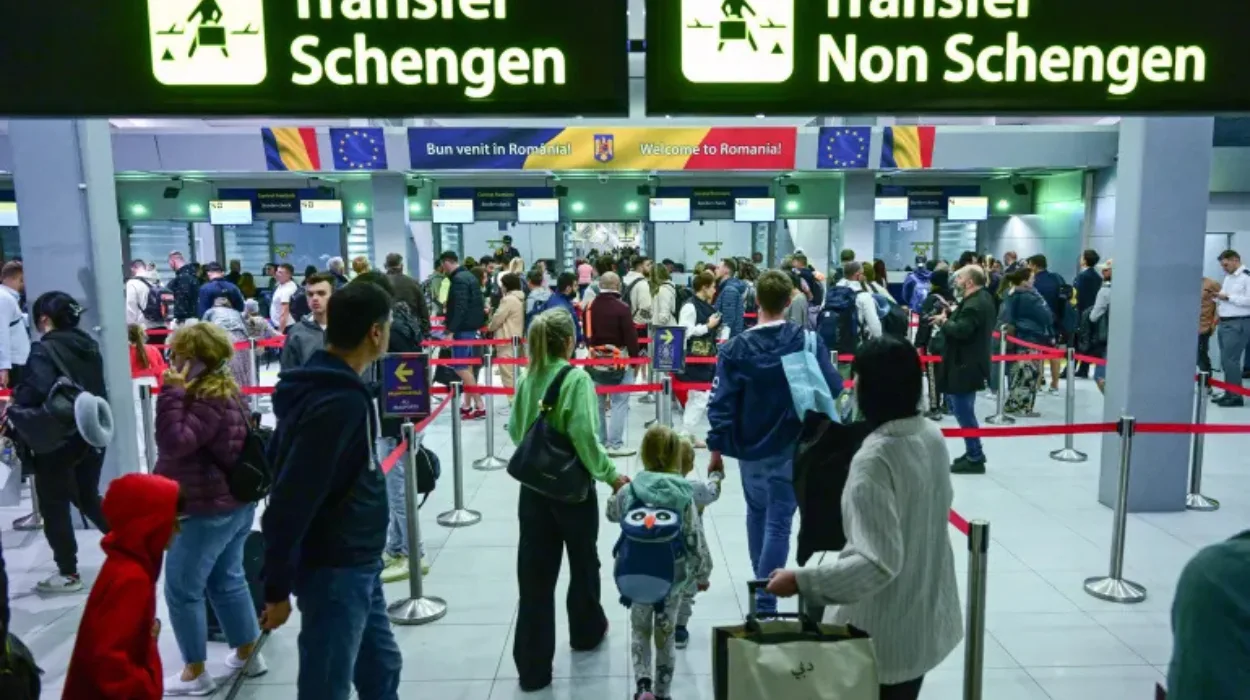Romania (Transatlantic Today)—After a 13-year wait, Bulgaria and Romania have taken a significant step by joining Europe’s Schengen area of free movement for air and sea travel. However, land border integration remains pending due to Austria’s concerns about irregular migration management.
A Step Toward Full Schengen Membership
The Schengen area, established in 1985, allows over 400 million EU citizens to travel without internal border checks. Bulgaria and Romania’s partial membership lifts controls at their air and sea borders, enhancing travel ease and offering symbolic progress toward full integration.
“This is a very beautiful achievement,” said Mincho Yurukov, a traveler at Sofia Airport. “It makes things easier for us as Bulgarians and makes us feel like Europeans.”
European Commission President Ursula von der Leyen praised the move, stating, “Together, we are building a stronger, more united Europe for all our citizens.”
Challenges at Land Borders
Despite the milestone, road transport unions and businesses in both countries have voiced frustration over delays at land borders. Truck drivers face long waits—up to three days in some cases—leading to significant financial losses.
“Romanian hauliers lose billions annually due to long border queues,” said Radu Dinescu of the Romanian Road Transport Union (UNTRR). Bulgarian businesses echoed similar concerns, with 97% of goods transported by land still subject to checks.
Efforts to Address Migration Concerns
Austria’s reluctance to allow land border inclusion stems from migration management concerns. In response, Romania and Bulgaria have joined a regional police initiative with Austria, Greece, and Slovakia to combat irregular migration. Additionally, Frontex, the EU’s border agency, plans to triple its personnel in Bulgaria to control crossings from Turkey.
Bulgarian Interior Minister Kalin Stoyanov expressed optimism, stating, “We should become full Schengen members by the end of this year.” Romanian officials also expect negotiations for land border integration to conclude in 2024.
Looking Ahead
While air and sea access to the Schengen area marks progress, the goal remains full inclusion. Both countries are committed to addressing migration concerns and advancing discussions to achieve seamless land border integration.
“There is no doubt this process is irreversible,” said Romanian Interior Minister Catalin Predoiu. Bulgaria and Romania’s inclusion would further unify the Schengen zone, now comprising 29 members, and strengthen Europe’s vision of free movement.


























